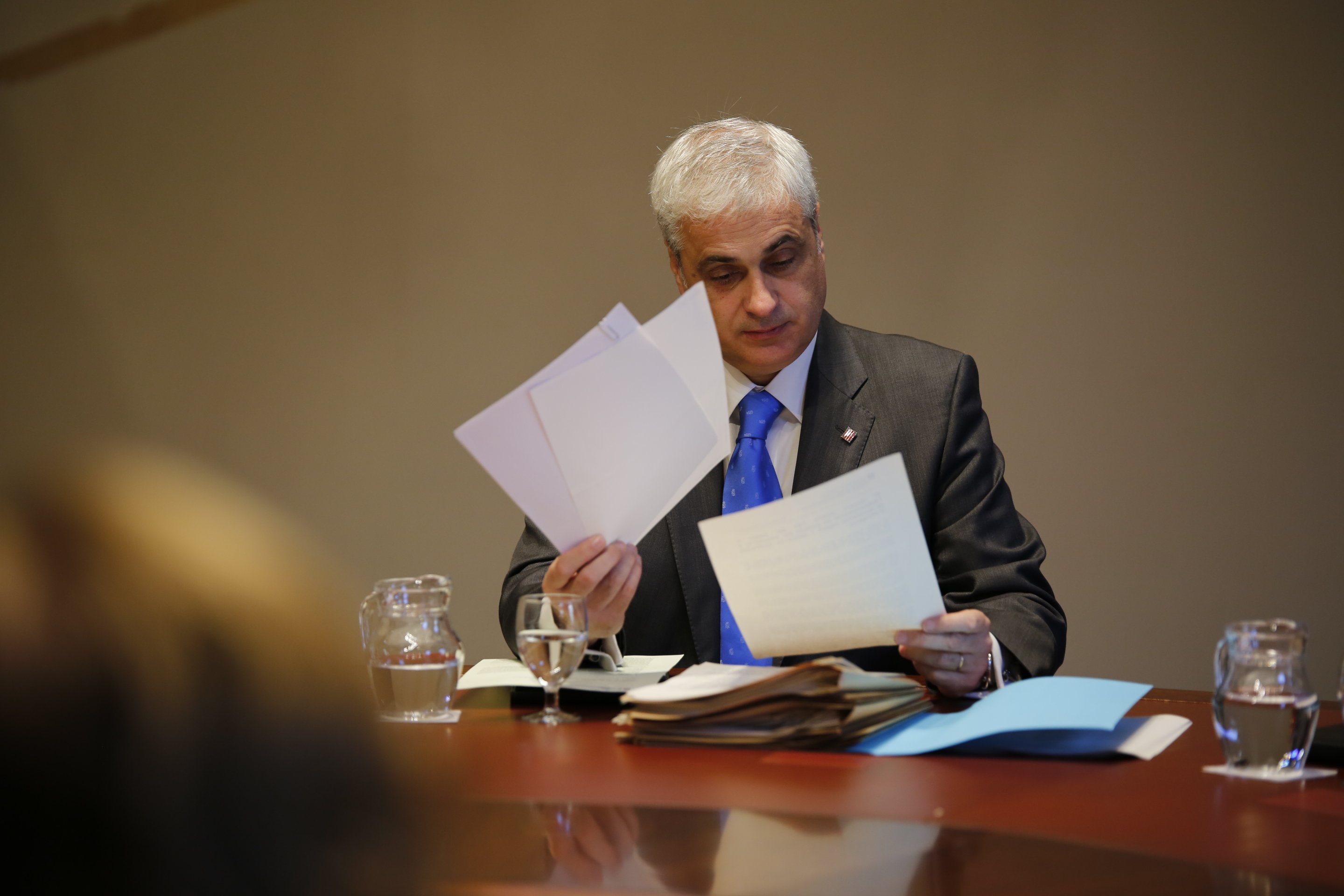First it was the entire family of former Catalan president Jordi Pujol indicted on corruption charges, and now it is the turn of a number of key figures in the old centre-right Convergència Democràtica party (CDC) - which Pujol once led. The issue at hand has taken 15 years to come to trial: the so-called 3 per cent case, referring to the size of illegal commissions which were allegedly charged for the awarding of contracts. The judge of Spain's National Audience court, José de la Mata, has indicted three former members of the CDC leadership, former Catalan justice minister Germà Gordó, along with two former CDC treasurers, Daniel Osácar and Andreu Viloca. As well the judge accuses the party's former legal director, Francesc Xavier Sánche Vera along with 24 other individuals and a total of 16 legal entities. The accusations are for alleged criminal organization, fraud in public administration, bribery, influence peddling and money laundering. The case is investigating the structure put in place to "illegally and covertly finance" the party.
The judge's 304-page ruling, delivered on Thursday at the end of the investigative phase of the case, sums up an inquiry that began in 2005 with irregularities committed by people linked to the Tarragona municipality of Torredembarra. Among the organizations and businesses which will be brought to court are both the CDC political party and its successor the PDeCAT, and the companies TeyCo, Urbaser, Fundación ACS, Grupo Soler Constructoras and Copisa. Five individuals and one company who were investigated have been dropped from the accusations.
The full list of the individuals now accused is: Germà Gordó, Daniel Osácar, Andreu Viloca, Francesc Xavier Sánche Vera, Anna Dolors Benítez, Carles del Pozo, Ángel Sánchez Rubio, Constantí Serrallonga, Ernest Santolaria, Josep Antoni Rosell, Josep Lluís Quer, Sixte Cambra, Antoni Vives, Xavier Tauler, José Miarnau, Josep Manuel Bassols, Sergi Lerma, José María Zaragoza, Pedro Javier del Llano, Ramon Anglada, Joan Albert Arqués, Félix Pasquina, Juan Luis Romero, Ramon Blázquez, Joan Maria Pujals, Jordi Sumarroca, Antonio Garcia Bragado, Jordi Soler, Jordi Duran Vall-Llosera, Juan Antonio Carpintero and Emilio Carpintero.
"Three levels"
The judge outlined "three levels of criminal organization" in an arrangement between senior CDC officials, public officials of Catalan institutions and various businesspeople. At the top are the heads of the party, the former directors Gordó, Osácar and Viloca, who according to the court's allegations carried out a checking and monitoring process on tenders for works and public services in different government administrations, all governed by CDC (municipalities, provincials diputacions and parts of Catalonia's Generalitat government itself). The investigation concludes that "they influenced those responsible in order to get the contracts awarded to companies implicated in or associated with this criminal pact." The managers of this system would keep accounts, control the outstanding debts "and of course receive the payments."
Below the managers were the authorities in the respective public administrations who, following instructions, altered public tenders to "direct" them to the companies which are now investigated. Finally, the judge includes employers who "systematically" arranged with senior CDC officials to make covert payments to the party. These donations were channeled through the foundations CATDEM and Fòrum Barcelona.
According to José de la Mata, all those investigated shared the same purpose: "to subvert the rule of law and, through intense abuse of power, to use the direction of the Administrations to obtain illicit income and profit, personal and commercial in the case of the businesspeople, and organizational in the specific case of the leader of the political party, obtaining illegal financing for CDC, which implied serious discredit to the public administration and damage to the public treasury itself".
The same pattern of action
After an analysis of the documents involved, the investigative judge claims there is a temporal and causal relationship between the advertisement of contracts, their tender publications, meetings between actors involved, awarding of contracts, and donations to CDC foundations. However, De la Mata notes that funding contributions were not always linked to contracts awarded. Sometimes they were simply intended to maintain a good relationship with the party and "situate or maintain it in a creditor position with a view to future contracts."
De la Mata describes a structure that is stable, permanent, and sustained over time with a pattern of operation planned and implemented by those responsible for CDC’s economic and financial area. The court's document notes that these donations were of major importance: they accounted for an average of 11.5% of the "private funding" of the party between 2008 and 2012 and 7.7% of the total funding of the party. It was sustained over time. In the words of the judge, "the best evidence is that the changes in the structure of the party did not in any case lead to a cessation in the commissioning of the acts under investigation."
CDC and PDeCAT, also investigated
Among the legal entities investigated is not only the CDC, but also its succesor party, the PDeCAT (Catalan European Democratic Party). As for CDC, the judge describes the operation under which it illegally funded itself as occurring without any "internal protocol." He stresses that it remained in place even after the Palau case, another major corruption case in which the CDC party was centrally implicated. Given this, he concludes that the organization "did not take any initiative to prevent a criminal activity that was maintained for at least eleven years."
As for the PDeCAT, De la Mata notes that there appears to be a single "identity" between the two parties and that what happened was not the birth of a new party. "It corresponds to the simple transformation or change of appearance of the same reality in order to disconnect from the responsibilities that may have been incurred by the previous political party."
With this ruling, the judge José de la Mata gives a period of 30 days to prosecutors and the parties making accusations to present their writs of accusation or abandonment of the case. Apart that, it will move to trial.

